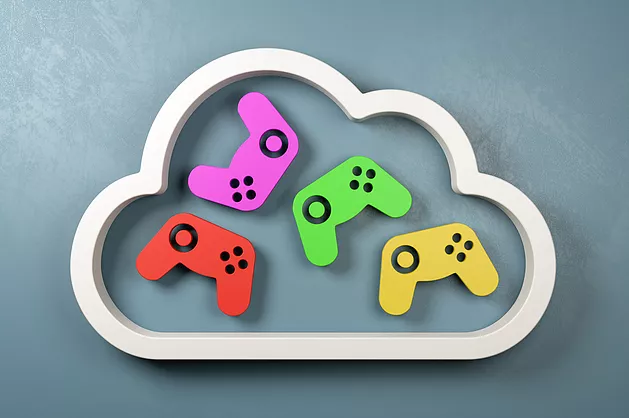
OOI Wei Tsang
Associate ProfessorCo-director, Image & Pervasive Access Lab (IPAL)
- Ph.D. (Computer Science, Cornell University, 2001)
- B.Sc. (Computer & Information Sciences, National University of Singapore, 1996)
Wei Tsang received his B.Sc. (Hon.) degree in 1996 from the Department of Information Systems and Computer Science at NUS (now NUS Computing), and his Ph.D. in Computer Science from Cornell University, Ithaca, New York, in 2001. He spent a year as a postdoc fellow at Berkeley Multimedia Research Center in U.C. Berkeley after the completion of his Ph.D., before returning to join NUS Computing as a faculty member. Wei Tsang’s research interests fall under the general area of interactive and networked multimedia applications. His current research focuses on volumetric video streaming, networked virtual environments, and cloud gaming systems. He is also keen in building multimedia and intelligent systems that contribute to better wellness and healthcare for all.
RESEARCH AREAS
Media
- Human-Computer Interaction
- Multimedia Analytics
- Multimedia Systems
Artificial Intelligence
- Transportation & Logistics Algorithms
- Machine Learning
- Computer Vision
RESEARCH INTERESTS
Interactive Media Streaming
Computer Networking and Distributed Systems
Multimedia Middleware and Applications
Networked Virtual Environments
Multimedia Systems
Edge AI
Human-AI Interaction
RESEARCH PROJECTS

DroneBuddy: Drone as a Companion for People with Visual Impairments
Drones has potential as assistive devices for people with visual impairments (PVI), for tasks such as locating personal items. The DroneBuddy project aims to develop interaction techniques, for a PVI to interact with and customize a drone equipped with programmable APIs to perform a personalized task.

DesCartes WP4: Human-AI Collaboration
WP4 focuses on how humans can interact with AI to (i) bring humanity aspects that cannot be computationally modeled into AI systems and algorithms, forming a hybrid AI with human interaction at its core, and (ii) allow hybrid AI to augment human perception and cognition (especially assisting humans in decision-making). Within this WP, we propose to develop interaction and visualization techniques
RESEARCH GROUPS
TEACHING INNOVATIONS
SELECTED PUBLICATIONS
- Praveen Kumar Yadav, Arash Shafiei, and Wei Tsang Ooi. 2017. QUETRA: A Queuing Theory Approach to DASH Rate Adaptation. In Proceedings of the 25th ACM international conference on Multimedia (MM '17). Association for Computing Machinery, New York, NY, USA, 1130–1138.
- Praveen Kumar Yadav, Abdelhak Bentaleb, May Lim, Junyi Huang, Wei Tsang Ooi, Roger Zimmermann: Playing chunk-transferred DASH segments at low latency with QLive. In the Proceedings of the ACM International Conference on Multimedia Systems (MMSys 2021), Association for Computing Machinery, New York, NY, USA, 51-64
- Yuang Shi, Varsha Suresh, Wei Tsang Ooi: Shape-Based Conditional Neural Field for Wrist-Worn Change-Point Detection. 2022 In the Proceedings of the IEEE International Conference on Pervasive Computing and Communications Workshops and other Affiliated Events, PerCom 2022 Workshops, Pisa, Italy, March 21-25, 2022.: 787-792
- Praveen Kumar Yadav and Wei Tsang Ooi. 2020. Tile Rate Allocation for 360-Degree Tiled Adaptive Video Streaming. In Proceedings of the 28th ACM International Conference on Multimedia (MM '20). Association for Computing Machinery, New York, NY, USA, 3724–3733.
- Samuel Rhys Cox, Wei Tsang Ooi: Does Chatbot Language Formality Affect Users' Self-Disclosure? In Proceedings of the 4th Conference on Conversational User Interfaces (CUI 2022), Glasgow, United Kingdom, July 26 - 28, 2022 1:1-1:13
AWARDS & HONOURS
School of Computing Teaching Excellence Award, 2015, 2013, 2012, 2008, 2006
National University of Singapore Annual Teaching Excellence Award 2008
DASH-IF Excellence in DASH Award (Runner Up), ACM MMSys 2021
Best Demo, ACM Multimedia 2013
ACM TOMCCAP Nicolas D. Georganas Best Paper Award 2011
Best Paper, ACM Multimedia 2008
MODULES TAUGHT

